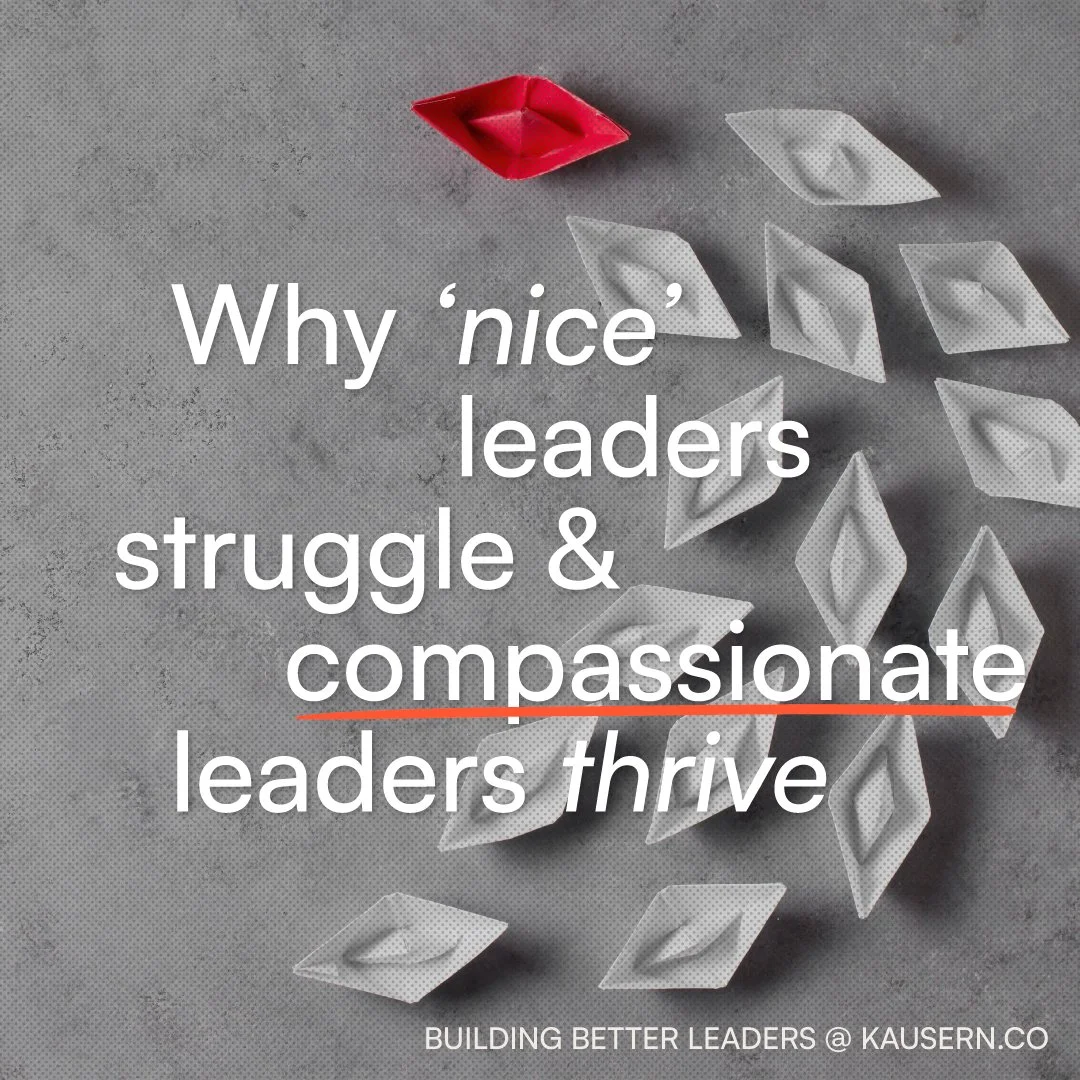Why ‘nice’ leaders struggle & compassionate leaders thrive
“Is being nice, good enough to earn my team’s trust?” The answer is “No.”
While many leaders strive to be “nice” when faced with hard conversations, the reality is that niceness can often come across as fake politeness or insincerity. True leadership demands compassion instead - a quality rooted in genuine care for others' growth, even when it means delivering tough love.
At its core, niceness is about avoiding conflict and preserving short-term harmony. Leaders who default to this approach may offer vague feedback or sugarcoat reality, leading to missed opportunities for growth, unaddressed issues, and eroded trust. Niceness, while comfortable, prioritizes being liked over genuinely supporting those they lead.
Compassion, on the other hand, is grounded in care and courage. It requires recognizing potential and having honest, sometimes uncomfortable conversations to help others grow. Compassionate leaders don’t shy away from difficult feedback - they lean into it.
Why do so many leaders default to niceness? Psychology suggests it stems from fear of rejection, a need for approval, or discomfort with conflict. Yet, this short-term strategy often backfires when team members perceive niceness as avoidance or a lack of authenticity.
I learned this the hard way. I once had a staff member “fired” from a key account. Hoping she would improve, I gave only positive feedback, avoiding the real issues to keep the peace. As a result, she remained stagnant, unaware of what needed to change. Eventually, the client demanded her removal from the account.
Looking back, a compassionate approach would have meant addressing her challenges with empathy, acknowledging her strengths, and outlining clear areas for improvement. While the conversation might have been uncomfortable, it would have built trust and fostered her growth.
Compassion isn’t easy, but it’s what separates leaders who are merely liked from those who are truly respected. By choosing compassion over niceness, you show your team that you value their potential enough to challenge them to be better.
So, ask yourself: Are you being “nice” to avoid discomfort, or are you compassionate enough to care deeply and act boldly?

